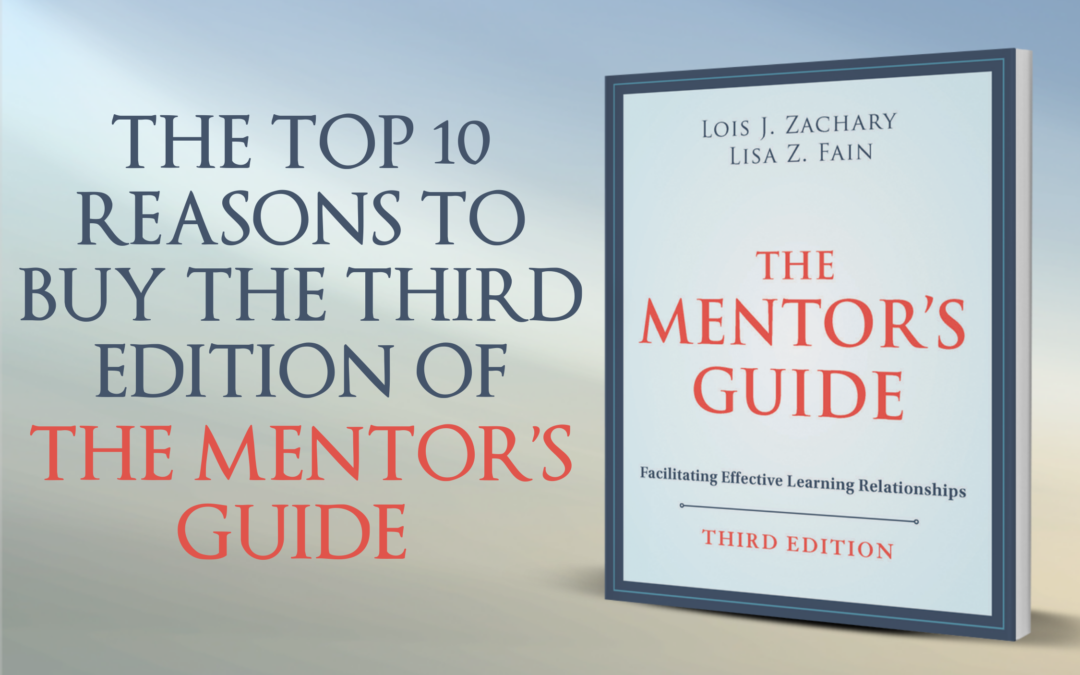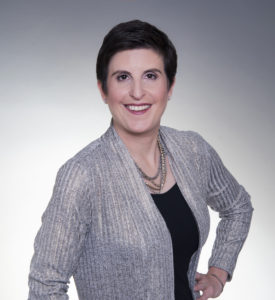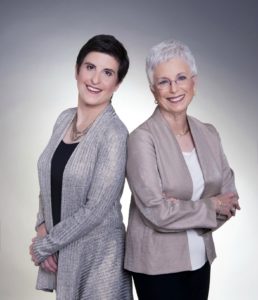by Lisa Z. Fain | Mar 7, 2025 | Advice for Leaders, Facilitating Learning, Goal Setting Conversation, Growth and Development, Mentoring Communication, Mentoring Questions, Mentoring Relationships, Supporting Mentors and Mentees
Civility is disappearing. Public meetings turn into shouting matches. Social media feeds overflow with personal attacks. Customers berate service workers. Even in workplaces, people talk past each other instead of to each other.
And it’s not just about rudeness. It’s how quickly conversations escalate, how little space there is for listening, and how disagreement turns into hostility. Civility isn’t about being well-behaved or avoiding conflict. It’s about how we engage—even when challenging norms or shaking things up.
Real change has never come from people simply being “nice.” It has come from people speaking up and staying in relationship with one another. Civility allows us to break barriers without breaking connections.
Civility Creates Community and Strengthens Peer Networks
When incivility takes over, people disengage, avoid tough conversations, or retreat into echo chambers. Over time, this fuels loneliness and isolation.
On the other hand, civility builds strong teams, workplaces, and neighborhoods. It makes people feel heard, valued, and more willing to participate.
Peer networks—professional, academic, or social—depend on civility. A thriving workplace or grassroots movement requires an atmosphere where people feel safe to share ideas. Civility paves the way for individuals to connect and form a true community.
Civility and Diplomacy: Learning From One Another
Civility and diplomacy go hand in hand. Diplomacy isn’t just for world leaders—it’s a skill we all use in daily life. Whether negotiating at work, leading diverse teams, or collaborating across cultures, diplomacy requires listening, thoughtful communication, and relationship-building—all hallmarks of civility.
Diplomacy isn’t about avoiding conflict; it’s about navigating it productively. The best diplomats don’t just argue their points—they learn from others. Civility enables that kind of meaningful dialogue.
When civility is abandoned—whether in politics, business, or everyday interactions—trust erodes, relationships break down, and opportunities for cooperation are lost.
Where Civility Has Gone Off the Rails
We see examples of incivility daily:
- Breakdowns in Diplomacy: Dismissiveness and hostility in high-stakes negotiations weaken global cooperation and stall progress.
- Social Media’s Callout Culture: What was meant to connect us often turns into a space where a single misstep—sometimes even a misunderstood comment—leads to public backlash.
- Toxic Workplace Cultures: When people don’t feel respected, collaboration and innovation suffer, and disengagement rises.
Where Civility Has Made a Difference
Despite the challenges, civility still drives meaningful change. It is evident in processes like Open Space Technology (OST) and Restorative Justice (RJ), which create environments where people can engage in honest, respectful dialogue and tackle big issues through a shared sense of ownership and problem-solving. It also shows up in these contexts:
- Programs That Foster Dialogue Across Divides: Organizations like Tomorrow’s Women, which brings together young Israeli and Palestinian women, and The Sustained Dialogue Institute, which fosters conversations in divided communities, show that structured, civil dialogue can bridge deep divides.
- Cross-Industry Collaboration in Business: Successful multinational companies prioritize civility-driven negotiation, strengthening partnerships and decision-making.
- Diplomatic Success: The Colombia Peace Agreement – In 2016, the Colombian government and FARC rebels ended five decades of conflict through civil negotiations, trust-building, and diplomacy. Instead of relying on force, leaders engaged in dialogue, proving that even deep divisions can be healed through civility.
Civility Starts with Small Choices
We can draw on these successes and make a difference in our workplaces and our relationships.
Civility isn’t about avoiding hard conversations. It’s about ensuring they remain productive. And while large-scale change matters, the real shift starts at the micro level—in everyday conversations, workplaces, and interactions.
So before sending that dismissive email, interrupting a colleague, or shutting down a different perspective, let’s take a beat. A single moment of civility—a pause, a question, an act of listening—can change the tone of a conversation and create space for connection.
Civility isn’t about pretending we all agree—it’s about ensuring we don’t lose each other in the process.
Where have you seen civility make a difference in your workplace, team, or community?
by Lisa Z. Fain | May 30, 2024 | Advice for Leaders, Facilitating Learning, Goal Setting Conversation, Growth and Development, Making Mentoring Work For You, Mentoring Communication, Mentoring Questions, Mentoring Relationships, Supporting Mentors and Mentees
The best mentor-mentee relationships thrive on curiosity and powerful questions. Mentors should resist the urge to “fix” problems and avoid prescribing specific actions. Mentees should focus less on being who they think their mentor wants and more on approaching interactions with a willingness to learn, grow, and discover how to think.
I am always seeking great questions to facilitate these interactions. Recently, I discovered three excellent questions while listening to the audiobook Clear Thinking* by Shane Parrish. Parrish suggests that when seeking advice, your goal should be to understand how the other person thinks, not just what they think. Although his book is not specifically about mentoring, the questions he proposes can be highly beneficial for both mentees and mentors.
Questions Mentees can ask their Mentors
Mentees might ask….
1. What variables would you consider if you were in my shoes?
How do these variables relate to one another?
2. What do you know about this problem that I don’t?
What can you see based on your experience that someone without it cannot?
What do you know that most people don’t?
3. What would your process be for making this decision if you were in my shoes?
Questions Mentors can ask their Mentees
These questions are also valuable for mentors. Instead of offering solutions or suggestions, mentors can prompt their mentees to reflect by asking:
1. What variables in this decision are important to you?
Who else or what else does this decision impact?
2. What are you most worried about in making this decision?
What possibility excites you the most?
3. What have you tried so far?
What do you think is the best process for this decision?
These questions encourage reflection and empower mentees to solve both the current problem they are facing and future problems. They also enable mentees to develop authentic solutions that fit their unique needs, values, and learning styles.
What questions have you used to encourage clear thinking in your mentoring relationships?
*Clear Thinking by Shane Parrish: (Farnam Street, 2023, ISBN: 0593086112)

by Lisa Z. Fain | May 8, 2022 | Advice for Leaders, Facilitating Learning, Growth and Development, Making Mentoring Work For You, Mentoring Communication, Mentoring Questions, Mentoring Relationships, Supporting Mentors and Mentees, Uncategorized
Major Changes to the 3rd Edition
Major Changes to the Third Edition
Since the first edition appeared in 2000, interest in and knowledge about adult learning and development has grown exponentially. We now recognize that adult learning is more than a cognitive process; it is a multidimensional phenomenon. The uniqueness of the adult learner has been accentuated over the last decade as we continue to learn about more the complexities of the brain, multiple types of intelligence, and our emotional selves. All of this has meant fundamental changes for mentoring, and for this guide. Among the major changes:
- A full two chapters are now devoted to the importance of context and connecting in mentoring, including an exploration of the context of difference and the context of how people come together to connect with one another in the relationship.
- Conversation between mentors and mentees are drawn from actual mentoring experiences in a variety of situations, including business, government, nonprofit, and higher education, and reflect the diversity of the global workplace.
- There is more discussion and emphasis on mentoring relationships embedded in context including a consideration of the context of other differences—sexual orientation, gender, and race—in the mentoring relationship, with many examples
- The chapter on the context of connection has been expanded to include physical, virtual, and personal context, with special attention to how virtual mentoring connections offer new ways to create and enhance positive mentoring relationships.
- The section on mentoring matches addresses seeking, selecting and evaluating a potential mentoring relationship.
- Additional examples have been included along with an enhanced mentor skills list and updated approaches for starting your mentoring relationship.
- The goal setting process has been expanded from SMART goals to SMARTer goals, adding to the specificity and measurability of the process.
- There is an enhanced conversation guide to help mentors evaluate mentee learning goals, full consideration of emotional triggers that impact mentoring and guidance for co-creating your mentoring partnership
- Includes more emphasis on trust, including the dynamics of self-trust and interpersonal trust
- Includes updated and enhanced content on feedback including how to get back on track when stumbling blocks get in the way. Explores the dynamics of the feedback process with many more examples and a feedback checklist for mentors.
by Center for Mentoring Excellence | Dec 19, 2017 | Growth and Development, Mentoring Relationships, Mentoring Training, News and Updates, Supporting Mentors and Mentees
Leadership Development Services’ Vice President assumes key leadership role starting January 2018.
Phoenix, AZ; Seattle, WA — December 19, 2017

Lisa Z. Fain, Leadership Development Services Vice President and new CEO of the Center for Mentoring Excellence
The Center for Mentoring Excellence, a division of Leadership Development Services LLC, is proud to announce that Lisa Z. Fain will become its Chief Executive Officer effective January 1, 2018. She will lead its practice of creating learning, growth, community, and inclusion for organizations and leaders seeking to achieve business results through mentoring excellence.
According to Dr. Lois Zachary, the current Chief Executive Officer:
“We are thrilled to have Lisa leading the Center for Mentoring Excellence. She is highly regarded for her combination of knowledge, expertise, humor, and no-nonsense practical approach to enhancing mentoring performance. Her passion for diversity and inclusion work has enabled her to assist mentors and mentees to understand, bridge, and leverage their differences to achieve better business results.”
Ms. Fain has conducted mentoring training programs in corporate, government, and educational institutions. A skilled facilitator and experienced coach, she offers clients solutions that come from her diverse experience and utilize her ability to listen and understand clients’ needs. She gives practical, actionable guidance to help organizations maximize the return on their investments in mentoring. Speaking about the transition, Lisa Fain said:
“I am very excited and honored to lead the Center for Mentoring Excellence. I look forward to continuing Dr. Zachary’s work to bring the very best in mentoring practices to organizations committed to their employees’ development and growth. Dr. Zachary will continue her association with Leadership Development Services and the Center, and we plan to offer new services from time to time, such as Mentoring Excellence Masterminds, which provides monthly online support for mentors, mentees, and program administrators to achieve sustained accountability and excellence.”

Lisa Z. Fain and Dr. Lois J. Zachary
Since October 2015, Fain has been Leadership Development Services’ Vice President and lead in Diversity Strategy and Cultural Competency, as well as CEO and Founder of Vista Coaching. Prior to those roles, Fain served as Senior Director of Diversity and Inclusion at Outerwall, Inc. (the parent company to automated retail giants Redbox and Coinstar). Lisa spearheaded the development and implementation of its diversity initiative, including launching the company’s first mentoring program for its Women’s Business Resource Group. Prior to that position, she worked as Outerwall’s in-house counsel, where she coached leaders and partnered with Human Resources to establish fair and effective policies and practices to sustain the organization as it grew in size, revenue, and renown.
Previously, Lisa practiced law with the Chicago office of a major multinational law firm and counseled employers on creating inclusive policies and practices. In addition, she served as a Master Trainer, training thousands of employees at a variety of companies on how to create a better workplace. Certified as a mediator through Chicago’s Center for Conflict Resolution, Lisa applied her counseling skills to help clients understand and prevent conflict.
Lisa holds a B.S. in Social Policy from Northwestern University and a JD degree from its School of Law. She is also a certified Life Coach, with certification from the International Coach Academy.
About the Center for Mentoring Excellence®
Center for Mentoring Excellence is a rapidly growing consulting, training, and coaching firm that offers training, consultation, and coaching to promote, elevate, and enhance the practice of mentoring excellence. Based on the work of its founder, author Dr. Lois Zachary, and its talented mentoring experts, the Center is able to provide customized solutions and services to its clients.
Its latest program, Mentoring Excellence Masterminds™, offers ongoing and just-in-time support to maximize the effectiveness and ROI of mentoring.
For more information about the Center for Mentoring Excellence and its unique mentoring services, visit www.centerformentoring.com.









